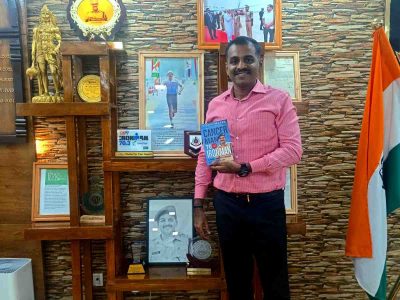At just 16, Suhanaa Setty delivers a compelling exploration into the often-overlooked economic contributions of women in her debut book, Invisible Hands of the Indian Economy. This ground breaking work uncovers the hidden labour of women across various social strata, from resilient entrepreneurs like Parmila, who defies traditional roles, to Januka, a teenage migrant reshaping her destiny in New Delhi.
The book features the stories of 22 women, each showing their significant but often hidden economic contributions. One such story is about Parmila, a woman from Haryana who challenges traditional gender roles with her determination. Instead of following the usual path of being a housewife, Parmila is the main breadwinner for her family. She runs a scrap business to earn between 10,000 and 15,000 rupees per month. After previously running a tea stall, this business reflects her entrepreneurial spirit and resilience.
Another key story is that of Januka, a teenage migrant from Nepal who moves to New Delhi in search of financial stability. Januka’s journey from working as a nanny to finding a passion for beauty services highlights the strength and determination of migrant workers, showing their important but often unseen role in the economy.
Also read: ‘The Satvic Revolution’ offers a practical guide to natural health and well-being
Reshma’s story adds another layer to Setty’s narrative. Working as a gardener in Gurgaon, Reshma deals with the financial burden of dowry practices while balancing her work with household chores. Her daily life shows how outdated cultural norms still affect women’s economic roles.
Setty also addresses the challenges faced by upper-class women. One example is Sureena Chowdhri, who started with a hobby of stitching. After 25 years, Chowdhri has created a successful high-fashion label for Indian ethnic wear and is featured in Vogue India. Despite her success, she faced many struggles while managing her passion for fashion and her responsibilities as a wife and mother. Her story highlights the personal sacrifices and challenges faced by women even at the top of their fields.
Through these stories, Setty encourages readers to rethink traditional measures of economic value. The book shows how women’s work, often considered “unproductive” by traditional standards, is crucial for family well-being and the broader economy. By focusing on the personal stories of Parmila, Januka, Reshma, and others, Setty emphasises the significant impact of their often invisible labour.
Setty’s book is more than just a collection of personal stories; it’s a meaningful commentary on the value of women’s work. Setty reflects, “As a kid, I always wondered why my mother left her job. And then I realised how the work she did as a housewife was what allowed my father to go to his office.” This realisation motivated Setty to highlight the often-unrecognised labour of women and its importance in supporting the economy.
Setty also shares a moving moment with Anita, a woman working at a pan stall, who said, “I don’t have, I can’t afford to have a moral conscience. I can’t think about the dignity of my job as a pan seller when it’s providing a roof over my head.” This statement shows the harsh reality that many people focus on survival rather than societal views on job dignity.
The book introduces readers to a range of stories that illustrate how women’s work supports both family life and the broader economy. Setty emphasises that traditional economic measures fail to capture the true extent of women’s contributions. “The work that essentially they perform enables their family members to optimally fulfil their responsibilities in the productive sector. But it seldom gets mentioned in serious discussions,” she notes.
Her approach combines personal anecdotes with data driven insights to advocate for a more inclusive view of economic value. She explains, “It was more about providing a story coming out from statistical data to support it.” By doing so, she calls for a re-evaluation of how economic value is measured, urging recognition of the often unseen labour of women.
Also read: The Cottage Cafe: Polo-inspired elegance with premium coffee and cuisine
Setty explains her motivations: “The work that women do in households helps their family members fulfil their responsibilities in the productive sector. This book aims to start a conversation about these contributions, which are rarely discussed.” Setty hopes her book will lead to a better understanding of how economic contributions are measured and valued.
The book Invisible Hands of the Indian Economy combines personal storytelling with important data. It calls for recognising and valuing the essential, yet often unseen, work of women across various sectors. Through her first book, Setty not only reveals the hidden contributions of women but also shows how young voices can make a meaningful impact on important social issues.





